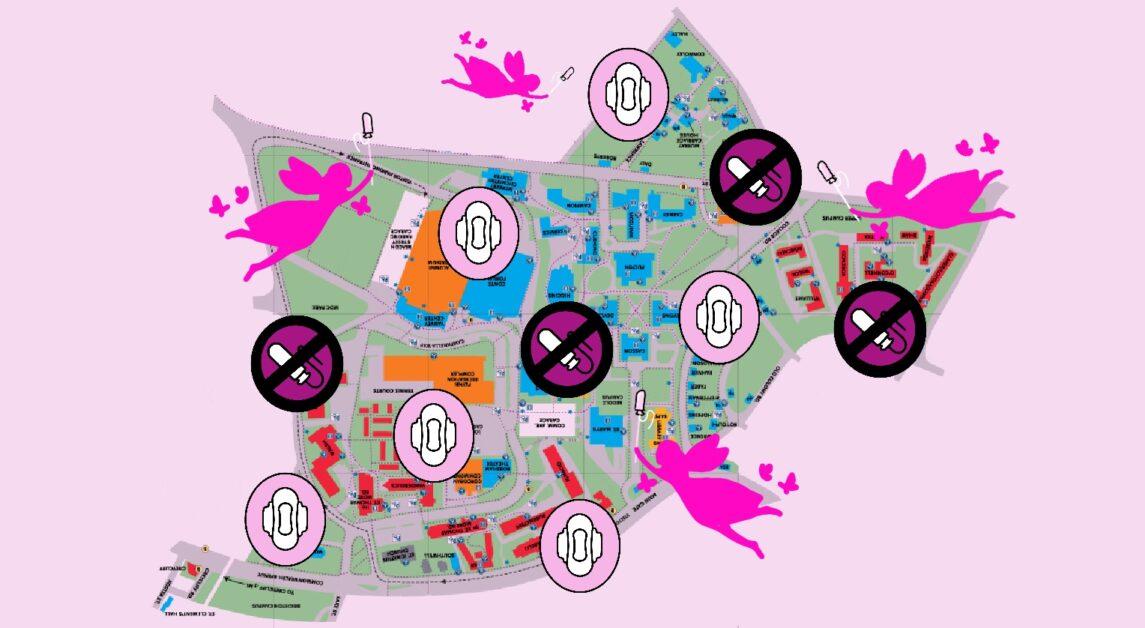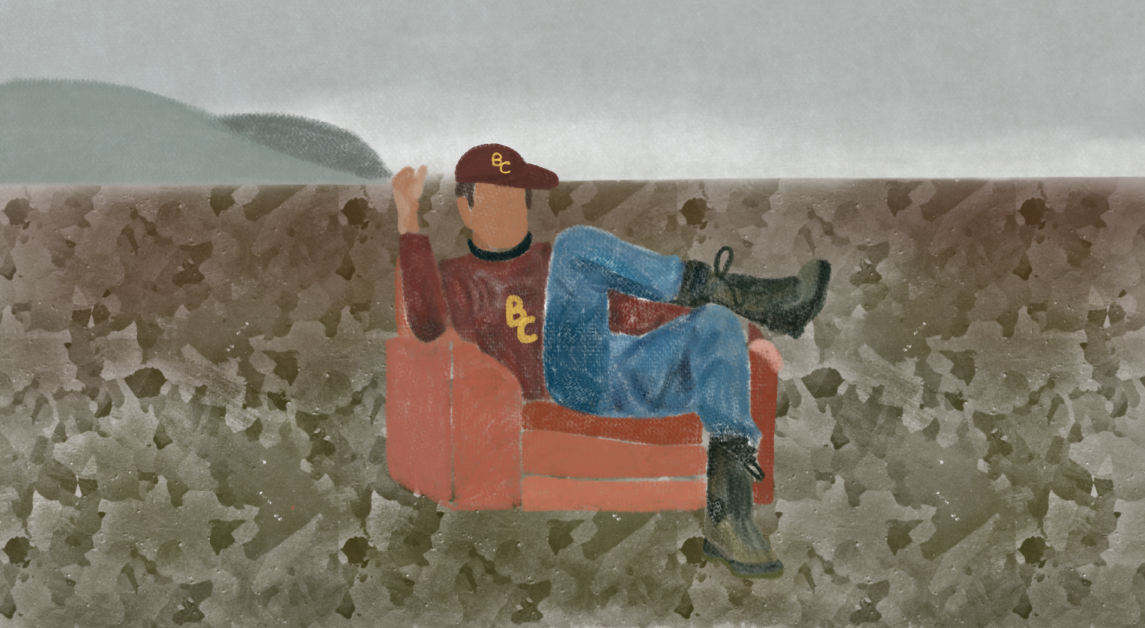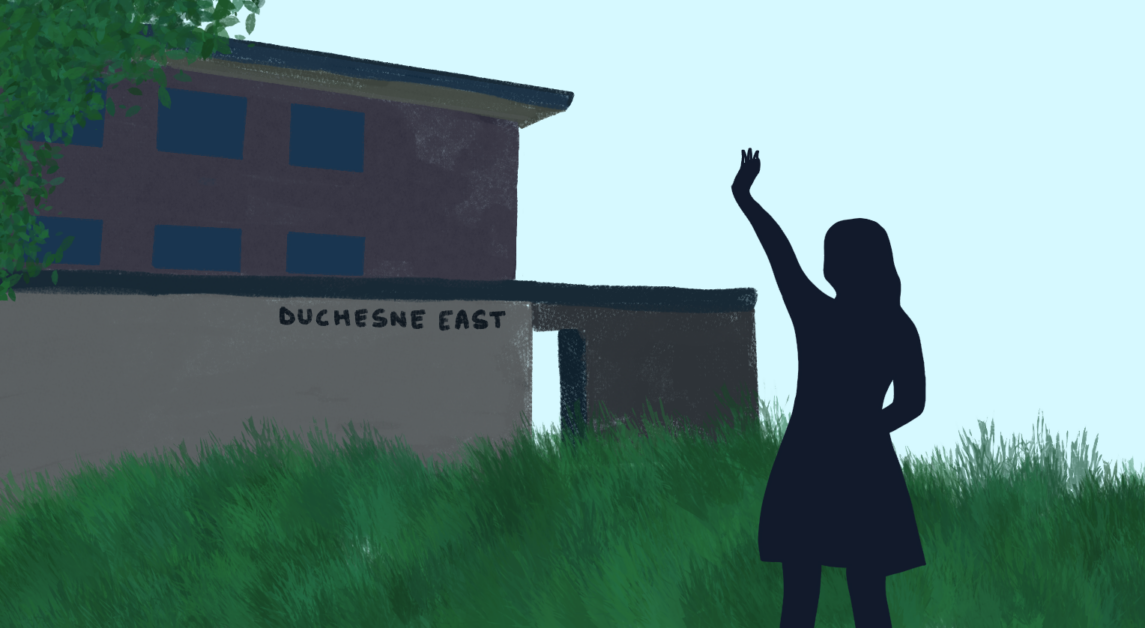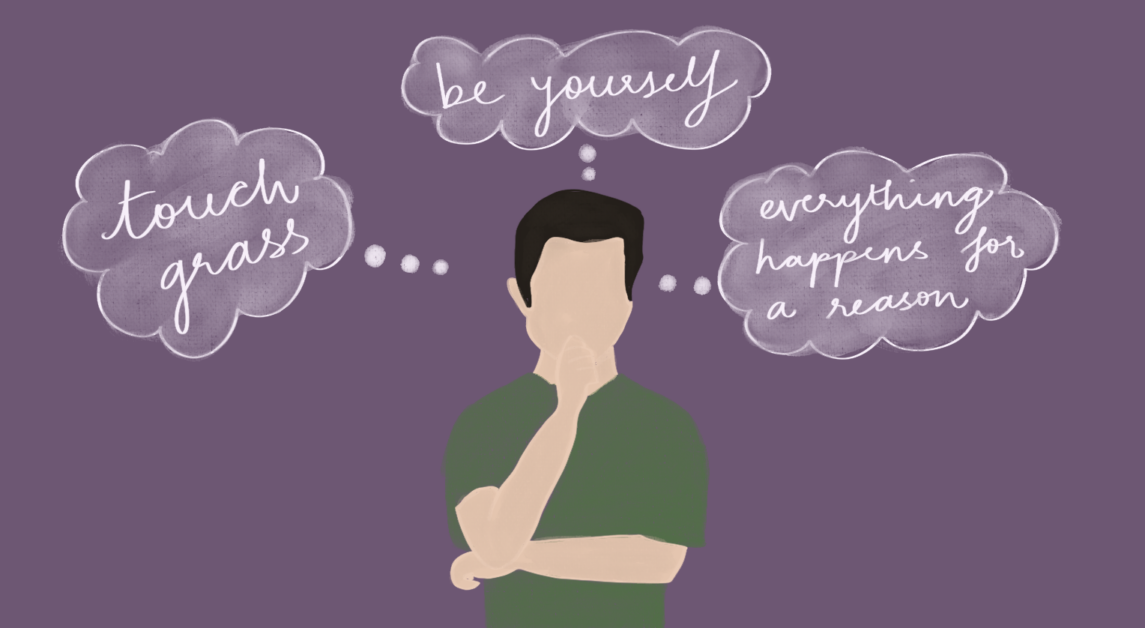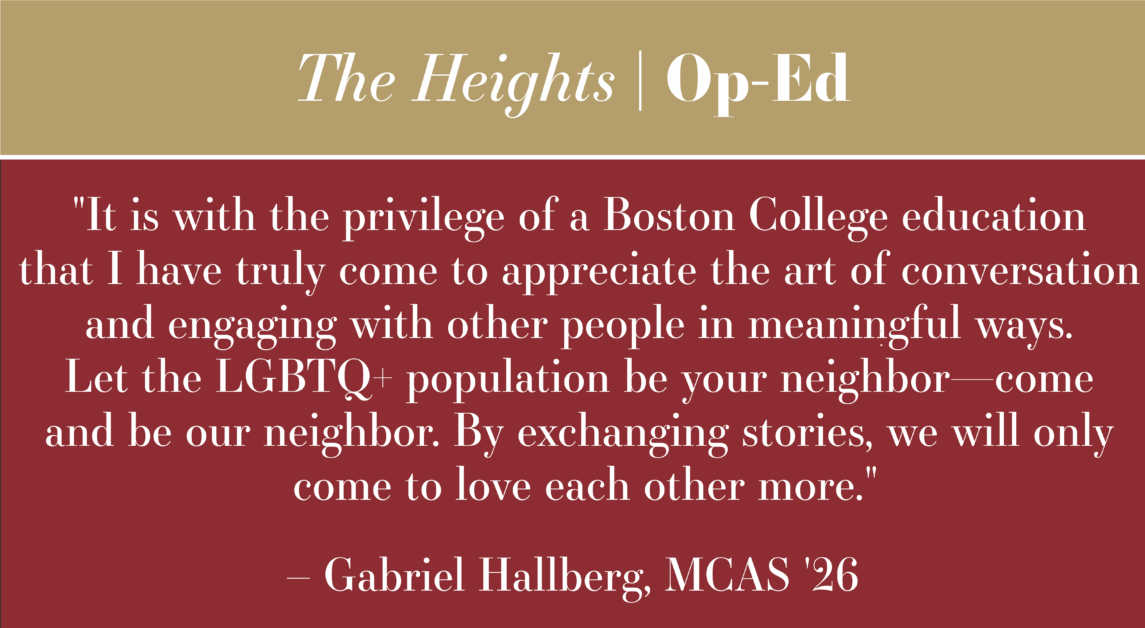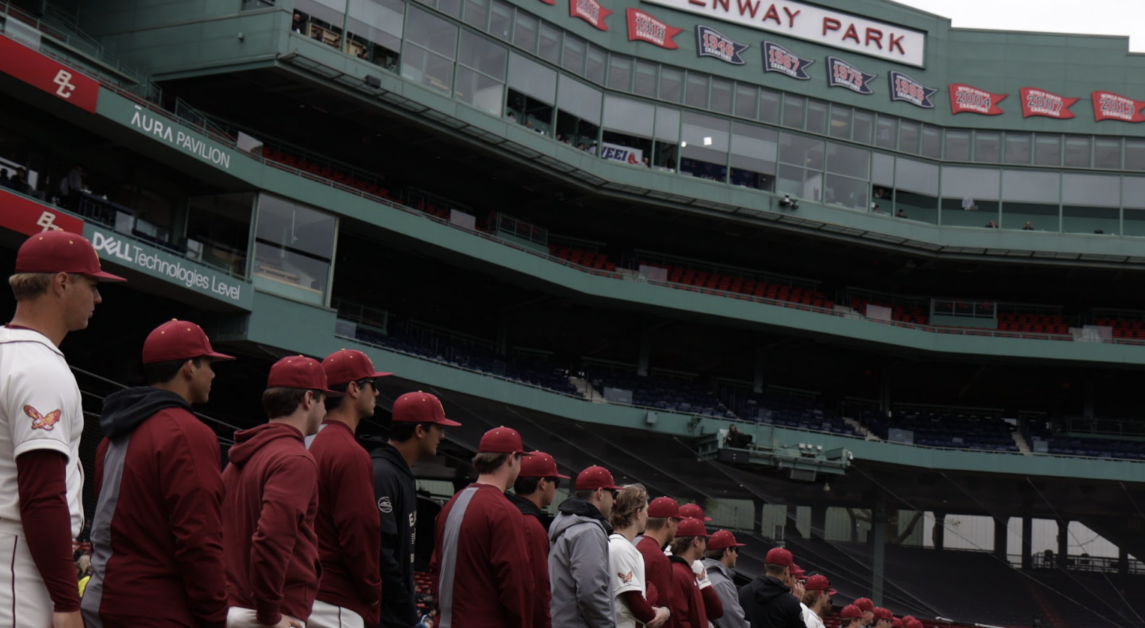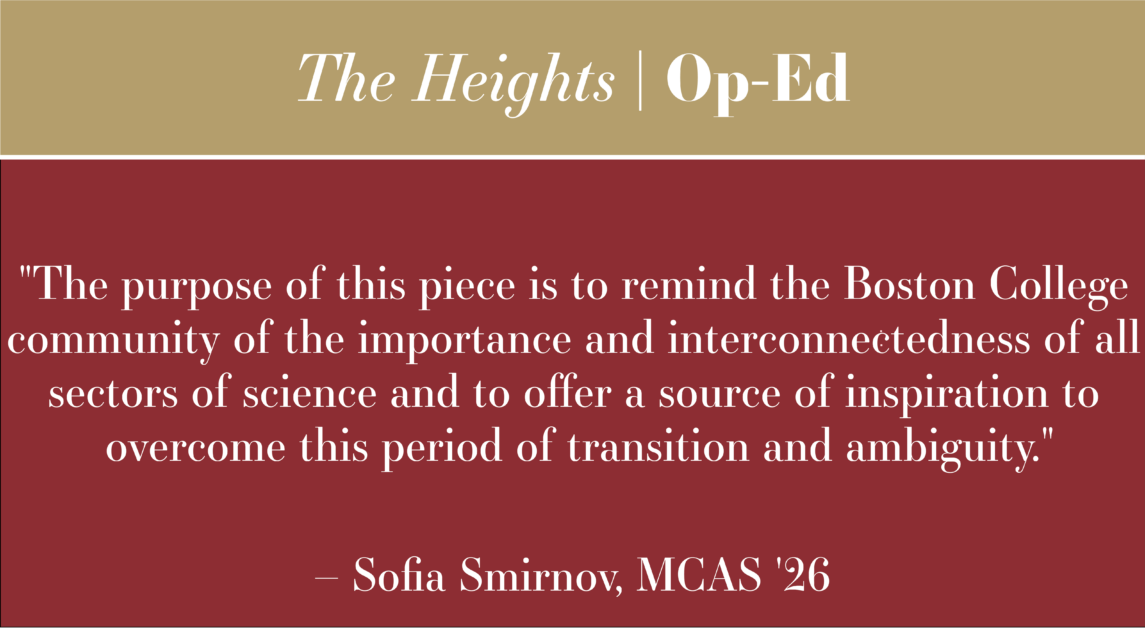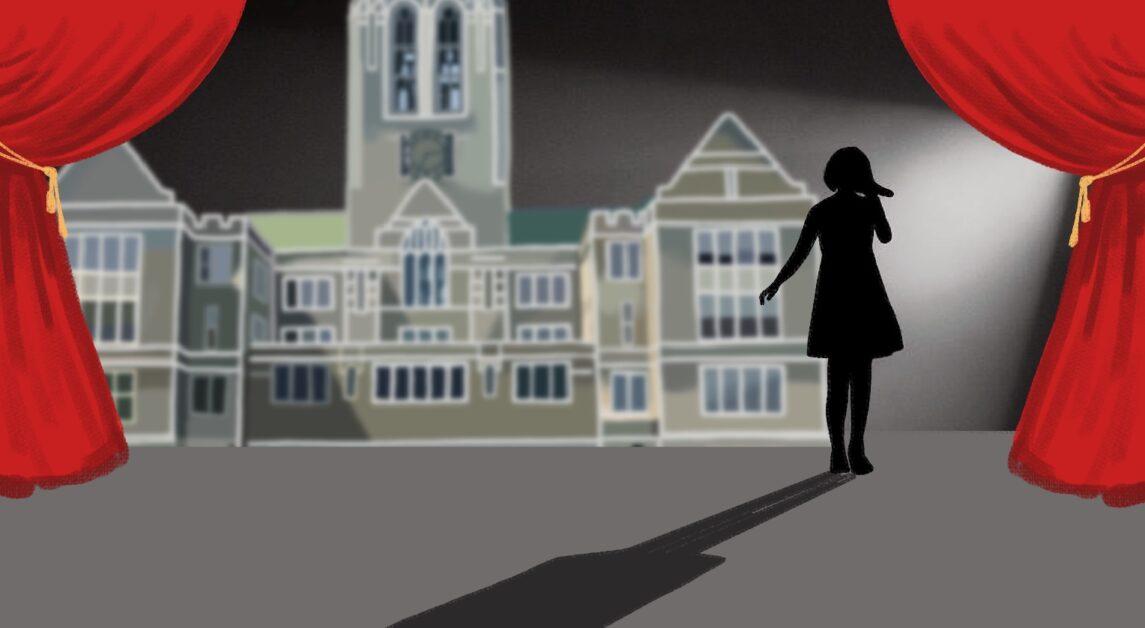The mark of spring might be here. I do not mean the warm weather, chirping birds or even longer days. What I mean are the service trips! With everyone returning to campus from Spring Break, I have already gotten word of the many service trips BC students went on during the break-whether it was Appalachia Volunteers (Appa), one of the Magis Service Immersion trips, or any of the other domestic or international volunteer programs.
Volunteerism is a big deal at BC. With dozens of volunteer organizations, students on this campus have numerous opportunities to give their time and energy to serving the people of Boston, the people of the U.S., and even the people of countries around the world. We are lucky to have these many opportunities to do good work, aid those in need, and learn about those we encounter and even about ourselves. Personally, I have never joined one of these trips or any of the big-name groups, like 4Boston or Urban Immersion. I have, though, volunteered my time, both in high school and at BC, and I am grateful for the occasions I have had to serve.
Volunteering today has, however, become just a part of what many people do to get into college, to put on a resume, or to stand out as an applicant to a program or for an award. Surveys conducted by Do Something-an organization that tries to encourage young people to volunteer-found that admissions officers at the top American universities are increasingly looking at not just volunteer work alone, but long-term commitment to a single service, in order to distinguish among applicants and determine admittance. I think this kind of mentality might be on the rise in the U.S. as more and more students seek to set themselves apart from their fellow students. This kind of volunteerism, though, can turn service work into a means for a gain.
I do not mean to paint all volunteering as ruthlessly exploitative. But, when it is reduced to a resume builder or the key to college admission, it loses its inherent value as charity done for others. I do not mean to say that this is the mentality of all who serve at BC, but I do think it is a present danger and a real risk of becoming the norm, should the trend in mentalities like volunteering-to-get-into-college continue to rise.
In the same vein is the rise of “voluntourism” today. Numerous organizations exist to invite people to spend time in foreign countries working on a project while at the same time touring and experiencing the new place. The problem with this, though, is that too often (even a little is too often, in this regard) these organizations focus more on catering to the needs and wants of the volunteers at the expense of the volunteer project. In some cases, this has even led to the criticism of such organizations being labeled as “big businesses” that are only concerned with themselves, sometimes even turning profits at the expense of needy communities by keeping them in dilapidated states while harboring funds intended for community projects.
None of this is to say that BC’s programs are even remotely like these. But a criticism of the mentality that allows for this kind of abuse-a mentality that sees volunteerism as a means and not as an end-is still warranted because this mentality can be found in even the most mild-mannered or well-intentioned people. In an article on Good, a social site that fosters a community seeking “creative solutions for living well and doing good,” the author argues that high school service work can give a competitive edge to college admission: “Of course, we all want students to volunteer for altruistic reasons, but it’s good to know that all those hours committed students spend trying to make a difference can give them a college admissions edge.” This is precisely the mentality with which I have qualms and I think it generates lazy service and, if in the right hands, exploitative volunteerism. It is not a mentality we should be fostering in our students-or in anyone, for that matter.
I am not advocating we throw out all our service opportunities at BC. With these considerations, I am simply asking my friends, peers, and fellow Eagles who serve to be mindful of why you serve and to remember that your service is for the betterment of those you serve. Any other reason would make the people you help nothing more than a means to some personal end.
Editor’s Note: The views presented in this column are those of the author alone and do not represent the views of The Heights.


